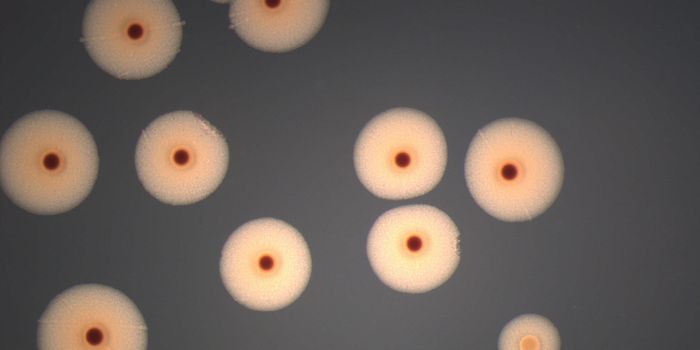Ethics of Advances in Biotechnology
We have always been fascinated with the possibility that science could some day allow us to edit or create the DNA that makes us precisely who we are. It has historically always been the thought that you are the way you are, and there is no changing that. If you are born with brown eyes, you ought not hope to someday have blue eyes or if you are 8 feet tall you shouldn’t dream of being 5 foot 10 inches – or vice versa; although we have certainly tried to change these hereditary, genetic factors – you can buy colored contacts, wear thick soled shoes to look taller or wear vertical strips to add to that effect. Scientifically, we have been working on it for quite some time. The cloning of Dolly was a major breakthrough that raised a lot of ethical queries, and researchers clone genes of interest into cells and animals in the lab routinely. Now, we hold the potential to successfully edit our genetic code and modify what is found there to our liking and particularly to use as a therapeutic for disease, but with great achievement comes great responsibility – let’s talk ethics.
The November issue of Nature Biotechnology published a perspective article on just this, titled “Ethical principles for the use of human cellular biotechnologies”. Breakthrough technologies in biomedical engineering hold great potential for new therapeutics in a wide range of disease states. Let’s say a particular disease is caused by a mutated gene, lack of an essential protein, or conversely the over abundance of a protein with negative side effects; well what if we could just edit the human genome to fix these mutations, re-express the lost protein, or abrogate the expression of the overly abundant one? CRISPR, or clustered regularly-interspaced short palindromic repeat, has reignited the field of gene edting, along with recent success with RNA interference mediated alterations of expression, and these are just two technologies to name a few. With such advances, some feel that we should plough ahead while others believe we should tread lightly and think more about what it is, exactly, that these technologies are affording us and how it should be managed. The article in Nature Biotechnology highlights a global conference that was held in Atlanta, Georgia in May of 2015 where “over 140 delegates gathered for a three day conference entitled ‘Biotechnology and the Ethical Imagination: A Global Summit’ (BEINGS). The purpose of the summit was to see whether an ideologically and culturally diverse group of stakeholders from a variety of fields and approaches could generate consensus on a set of principles to guide basic and translational science.” This is no easy task to accomplish.
In summary, this summit resulted in a set of ten principles which were set forward as a foundation for the open discussion and as a word of caution for the field of rapidly growing biomedical technologies. They are as follows, directly from the perspective:
- The biotechnological enterprise should have as its principle goals the allevation of human suffering and the mitigation of the environmental harms, as well as the general improvement of the human condition.
- The biotechnological enterprise must invest time in asking questions about its assumptions and its eventual impacts on communities and individuals, and must include their voices, as well as those of other stakeholders in the scientific process.
- A well-considered and reconceptualized precautionary approach (not to be confused with the precautionary principles as commonly understood) should guide those cellular biotechnologies with the largest capacity for harm (such as embryonic germline modifications and environmental releases) at the individual, group, social, and environmental level.
- Scientists and other concerned parties should resist pressure to overly promote or exaggerate the impacts of their work, and responsibly communicate and interpret scientific findings and their implications to the public.
- International treaties should be used to establish international policy standards and guidelines for the just sharing of risks and benefits of technologies; the international community should sanction violators by, for example, ostracizing them from political, scientific, and biotechnological collaboration.
- International scientific bodies and professional societies should call for and enforce to the degree possible collective oversight over human reproductive germline engineering of the embryo and encourage international consensus and regulation.
- National scientific priority planning and scientific funding strategies, especially around the engineering of nonhuman life forms released into the environment, should carefully consider the needs of developing nations and include their participation, with a conscious intention toward diminishing global disparities (in both developing and developed nations), without compromising or neglecting areas of national importance in the biotechnologically developed world.
- The scientific and biotech industry communities have a duty to address potential intentional and unintentional misuse of human cellular biotechnologies through training and teaching, advocacy for appropriate external regulation, and honest self-evaluation, self-regulation, and promotion of moral behavior.
- Ownership of one’s personal, unique organic characteristics reside with the individual, including attributes that may have value to biotech, such as one’s genome, epigenome, proteome, metabolome, and microbiome.
- The modern scientific enterprise includes the obligation to proactively consider, address, and foster the wellbeing of those who are not direct participants in research, but whose rights or interests are nonetheless affected by others contributing biological materials to research.
Each of these principles themselves could have entire articles, or books, written on their importance and implications, but for now this facilitates thought provocation and provides insight. To read the complete article, see Paul Root Wolpe, Karen S Rommelfanger & the Drafting and Reviewing Delegates of the BEINGS Working Groups, Ethical prinicples for the use of human cellular biotechnologies (2017) Nature Biotechnology 35:11(1050-1058).
Sources: Nature Biotechnology, Wikipedia, XPlore Health, Youtube, Pixabay.









